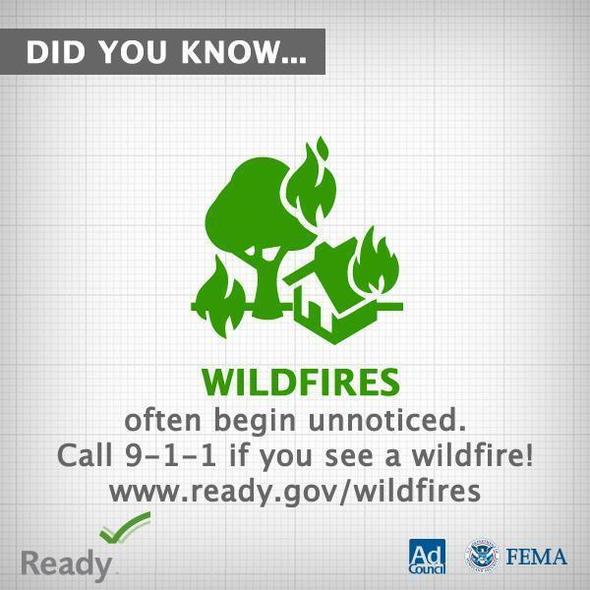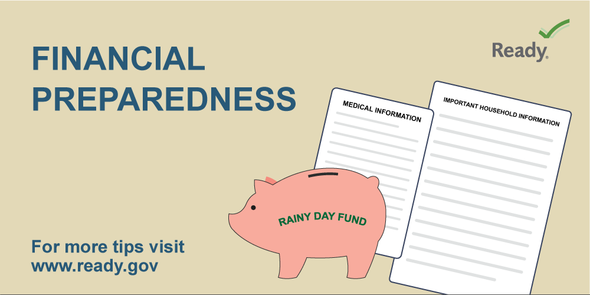|
On April 23, FEMA
posted the draft Individual Assistance Program and Policy Guide (IAPPG)
for public comment. The IAPPG will provide a single comprehensive
reference document for all FEMA Individual Assistance (IA) programs.
The document will be posted
for public comment on FEMA’s website for 45 days, with the comment period closing on
June 7, 2018. FEMA
will then adjudicate comments and finalize the document. Once finalized, the
IAPPG will replace the Individuals and Households Program Unified Guidance
(IHPUG) from September 2016, and all stand-alone IA policies.
This document consolidates
policies for all IA programs, including the Individuals and Households Program,
Mass Care and Emergency Assistance programs, and the Community Services
programs. The IAPPG is intended to provide a comprehensive policy
resource for state, local, tribal, and territorial governments and
non-governmental partners, as well as increase consistency, collaboration, and
the sharing of knowledge with those who assist disaster survivors with
post-disaster recovery.
The creation of the IAPPG
furthers the agency’s goal of reducing the complexity of FEMA by streamlining
the disaster survivor experience as outlined in the agency’s 2018-2022 Strategic
Plan.
Please visit www.fema.gov/individual-assistance-program-and-policy-guide to
review and provide comments on the draft IAPPG.
The ability to store and move resources within state, local, tribal, or territory (SLTT) areas is a critical piece of preparedness, response, and recovery for disasters. FEMA offers the Logistics
Capability Assistance Tool 2 (LCAT2) to help states, local jurisdictions, tribes, and territories identify strengths, weaknesses, opportunities, and best
practices.
The LCAT2 is an excellent way to determine a government’s or
jurisdiction’s logistics capability level, and is a crucial step in supporting
preparedness planning, including training, grants, and exercises. The tool can
identify areas that would benefit from support to either establish, enhance, or
optimize current capabilities. To date, 61 SLTT assessments have been
completed using the tool across the country and territories. Assessments using
the tool can be completed through FEMA or done independently by the state,
local, tribal, or territorial government.
For more information or to access the LCAT2, please visit
contact your Regional Logistics Chief through the FEMA
Regional Contacts webpage.
FEMA is sharing data files developed in support of FEMA’s January 1, 2018
reinsurance placement. Sharing reinsurance placement
information with the general public helps the
nation more clearly understand our shared flood risk.
The data and information was derived in part using catastrophic flood risk
models developed by AIR-Worldwide and RMS, two well known risk model
developers. That information may also be useful for the insurance
industry, academics, and others in understanding and studying flood risk within
the United States. FEMA looks to continue to foster strong private-public
partnerships as FEMA, the public, academia, and the private sector work
together to improve flood resiliency in the United States. In order to meet the Privacy Act of 1974 requirements, the data are
aggregated at the zip code level or higher to ensure that no personally
identifiable information is released.
This information is posted on FEMA’s website at: www.fema.gov/media-library/assets/documents/129784.
For more information about the 2018 reinsurance
placement, visit: www.fema.gov/nfip-reinsurance-program.
During an emergency,
authorities need to provide the public with life-saving information quickly.
Broadcasters are the important link in sending this message out to the public.
FEMA’s Integrated Public Alert and Warning System (IPAWS) is a national system
for local alerting that provides authenticated emergency alert and information
messaging from emergency officials to the public through radio, television,
cellular phones, and internet applications. At the National Broadcasters Association
annual conference on April 10 in Las Vegas, Nevada, IPAWS staff partnered with
the Nevada Division of Emergency Management to present a workshop on the
state-issued Federal Information Processing Standard 201 (FIPS 201) credential
for broadcasters.
When time is of the
essence during an emergency, gaining physical access to a transmitter site is
crucial. Carrying the new credential provides broadcast station and cable
company engineers and technical staff with access to facilities to broadcast
during an emergency or disaster, when travel may be limited by law enforcement.
This month, the Nevada
Division of Emergency Management began credentialing broadcast engineers
through the state’s First Response Broadcaster Program. Nevada is the first in
the nation to recognize broadcasters as first responders/first informers as
part of the state’s critical infrastructure. Nevada is issuing the engineers
with a Personal Identification Verification-Interoperable (PIV-I) card using
smart card technology. The smartcard FIPS 201 is also used by the federal
government. By displaying the card when travel is restricted during an
emergency, law enforcement officers can make quick decisions on allowing access
to the engineer cardholders.
National
Fire Protection Association’s (NFPA) Wildfire Community Preparedness Day is on May 5, 2018. Join
your friends, family members, faith-based group or youth organization, and
volunteer your time to improve your community’s ability to withstand and
recover from a wildfire, which also may improve the safety of firefighters.
There are many ways to help protect homes, neighborhoods,
businesses, and entire communities:
- Reduce the amount of flammable materials and brush that can
burn around your home or business;
- Create a fire-free area within the first five feet of your
home using non-flammable materials and high moisture-content plantings;
- Maintain an area that is clear of flammable materials and
debris for at least 30 feet on all sides from your home or business; and
- Move wood piles and
propane tanks to at least 30 feet from your home or business.
To
assist fire departments and citizens within the community about wildfire risks,
the United States Fire Administration (USFA) has compiled a collection of resources that can be found at www.usfa.fema.gov. The Wildland Urban Interface (WUI) Toolkit has recommended resources that will
help the fire department and communities prepare for and respond to WUI fires. The toolkit includes tools to assess community risks, codes and standards,
outreach materials to increase awareness, planning, research, and training
courses.
For more wildfire safety information, visit www.ready.gov/wildfires.

Along
with plans, supplies, and drills, you need to prepare yourself financially for a
disaster.
Prepare for your financial future this final week of National Financial Capability Month, April
22-30, with the Emergency
Financial First Aid Kit (EFFAK). The EFFAK can help you collect and organize key financial,
medical, and household information. The EFFAK also provides tips and resources
to help you plan for big and small emergencies.
You can get the EFFAK for free. Call 1-800-480-2520 and ask
for publication number 1075. It is also available as a free download online at www.ready.gov/financial-preparedness
or at www.operationhope.org.
In observance of National Financial Capability Month, the Financial Literacy and Education Commission
(FLEC) invites you to a webinar on Thursday, April 26. This webinar will
provide financial tools and resources to use when working with families and
individuals. The topics include steps to better prepare for and bounce back
from unexpected events. This webinar will include various presenters from the
Federal Emergency Management Agency (FEMA) and other FLEC agencies.
Title: Be Ready Financially: Resources to Help Individuals
and Families with Financial Preparedness
Date: Thursday, April 26, 2018
Time: 2 – 3 p.m. EDT
How to join the webinar:
- Please
register for the event using the Adobe Connect registration web link.
- Be sure
to test your Adobe Connect connection prior
to the meeting.
- This
webinar will offer captioning.
Learn more from Ready.gov or MyMoney.gov.

FEMA’s Emergency Management Institute (EMI) hosts a series of
“One Link, One Bridge, Many Voices” e-Forums every Wednesday from 3-4 p.m. EDT. EMI e-Forums are one-hour, moderated webinar discussions
that provide an opportunity for EMI and the emergency management community to
discuss matters of interest on national preparedness training. The e-Forums
showcase whole community partners and peers, sharing their experiences. The
panel format offers opportunities to provide technical assistance in training
management by facilitating peer-to-peer sharing of best practices.
May EMI e-Forums
- 5/2 Better Outcomes
Because We Exercised with Integrated Public Alert and Warnings System (IPAWS)
- 5/9 Media Moguls Who
Contribute to Our Emergency Management Profession
- 5/16 Training for FEMA Corps: A Model for
Training Community Youth Works
Participation link: https://fema.connectsolutions.com/emieforums
Conference call-in: 800-320-4330, PIN 107622
Questions: https://training.fema.gov/contactus/sendcomment.aspx
EMI e-Forums on Adobe Connect
are mobile device accessible.
FEMA Invites Whole Community to Participate in Historic National Level Exercise
FEMA
is conducting its 2018
National Level Exercise (NLE) for the whole community, inviting government
agencies, private sector and non-profit organizations, and individuals to
participate in the biennial exercise. The exercise, taking place April 30 – May
11, 2018, represents a key step towards implementing FEMA’s recently released 2018-2022 Strategic Plan.
Hurricanes
Harvey, Irma, and Maria last fall reinforced our need to prepare for
hurricanes, and NLE 2018 provides a well-timed opportunity to apply lessons
from those storms in advance of the 2018 Atlantic hurricane season, which
begins on June 1.
There
are many ways for individuals, businesses, and community organizations to
participate in NLE 2018 and get better prepared for hurricanes. If you live or
do business in an area vulnerable to hurricanes, it is important that you
understand your risk, develop a preparedness plan, and take
action. Find resources to prepare for hurricanes, as well as fact sheets and
toolkits, at www.fema.gov/nle.
Staffing for Adequate and Emergency Response (SAFER) Grants Application Period
The application period for the Fiscal Year 2017 Staffing for Adequate Fire and
Emergency Response (SAFER) Grants is open, with $345
million in funding available to enhance the ability of recipients
to attain and maintain 24-hour fire department staffing and to assure that
their communities have adequate protection from fire and fire-related hazards. Applications
are being accepted through 5 p.m. EDT on Friday, April 27, 2018.
Volunteer, career, and combination fire departments
are eligible to apply under the Hiring of Firefighters. Municipalities and fire
districts may submit applications on behalf of fire departments when the fire
department lacks the legal status to do so, e.g., when the fire department
falls within the auspices of the municipality or district. Eligibility for Recruitment
and Retention of Firefighters funding is limited to volunteer and
combination fire departments. National, state, local, or tribal organizations
representing the interests of volunteer firefighters and individual fire
departments (volunteer or combination) may apply for assistance for regional
projects.
Property Acquisition Open Space Collection Comment Period
FEMA recently listed a Federal Register Notice
for public comments about information collection. In accordance with the
Paperwork Reduction Act of 1995, this notice seeks comments concerning the
process of property acquisition and relocation for open space as part of FEMA's
mitigation grant programs, monitoring requirements after a receiving a grant,
and a direct grant to property owners for acquisition and demolition of severe
repetitive loss structures. Comments may be submitted through the Federal
Register at www.federalregister.gov/d/2018-03949 until April 30, 2018.
FEMA Seeks Feedback on National Incident Management System Resource Management Documents
FEMA’s National
Integration Center released for public feedback a number of National Incident
Management System (NIMS) Resource Management component documents
that will enhance interoperability and the effectiveness of mutual aid. This
National Engagement Period will conclude at 5 p.m. EDT on May 9, 2018.
The National Engagement Period provides an opportunity for interested parties
to comment on newly developed supplemental guidance.
Apply for National Emergency Management Advanced and Executive Academies
FEMA’s Emergency Management Institute (EMI) is accepting applications until May 15, 2018 for the National Emergency Management Advanced Academy and the National Emergency Management Executive Academy.
For more information and to apply for the Advanced Academy, go to https://training.fema.gov/empp/applytoadvancedacademy.aspx or contact fema-empp-advanced-academy@fema.dhs.gov. For the Executive Academy, go to https://training.fema.gov/empp/applytoexecutiveacademy.aspx or contact fema-empp-executive-academy@fema.dhs.gov.
|